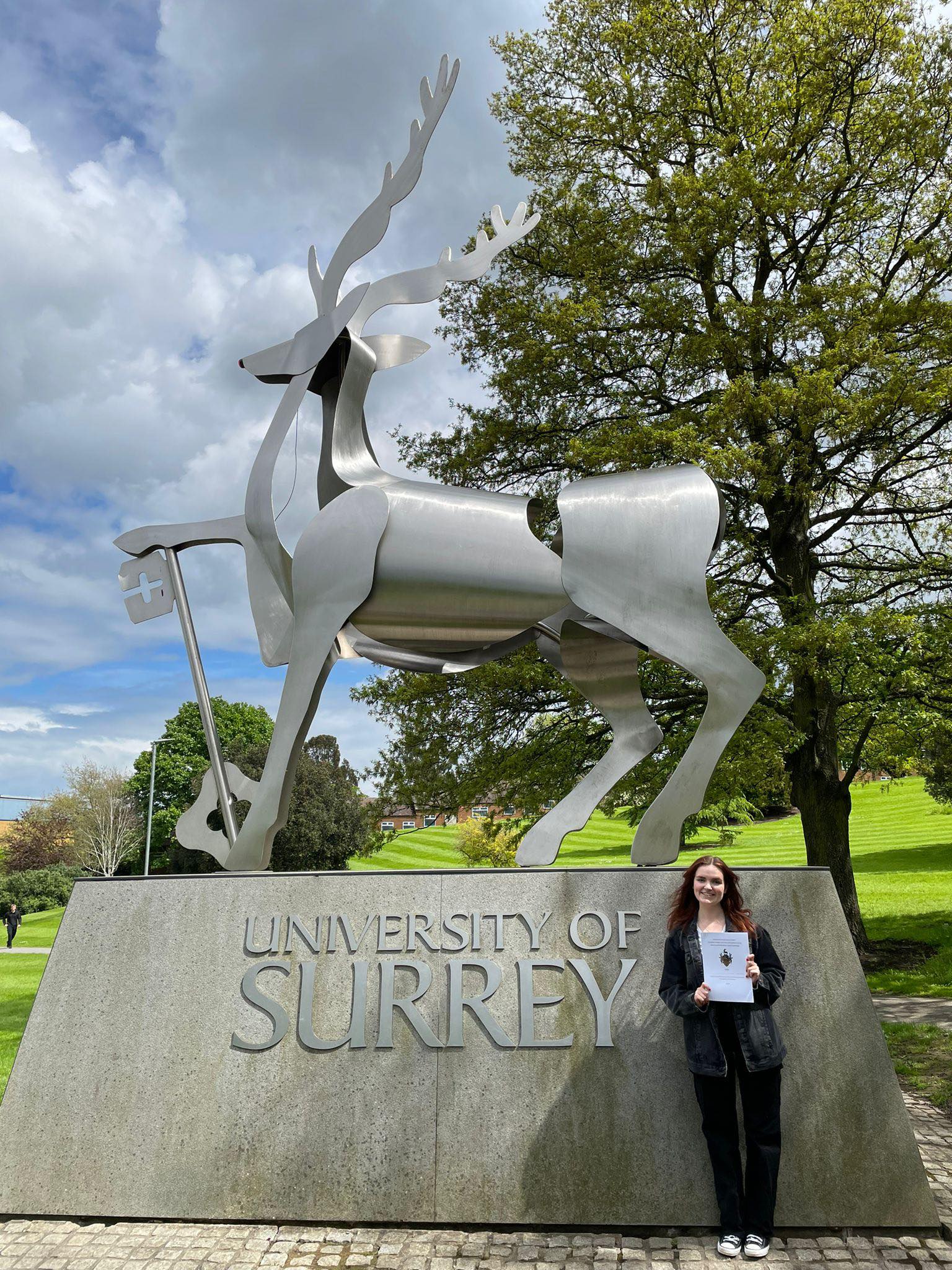Hi, I’m Charlotte and I’ve just completed my 4th year of my BSc Psychology degree at the University of Surrey. From the perspective of a final year, here’s what I think are the most useful pieces of information about studying psychology!
Modules
The first and second year provide you with a solid basis of all the core areas of psychology, including social, cognitive, biological and developmental.
What I really liked about how the course is structured at Surrey is the way research methods are integrated within each of the core areas, which is really useful in order to understand how different research methods work within the context of the different disciplines. This is especially helpful when it comes to conducting your own research project for your final year dissertation, as you’ll have a good understanding of the types of experiments you could conduct within the area of psychology you wish to focus on!
Talking about research, statistics is an important part of psychological research, something I found a daunting prospect going into my first year. But don’t panic! As part of the core statistics modules within first and second year, the weekly workshops that complement the weekly lecture content guide you through each statistical test, starting from the basics. There’s also extra support offered by the University’s Maths and Statistics Hub located in the library!
In your final year, as well as the dissertation, you will complete four optional modules across the year. This is a great way of using your knowledge from first and second year to mould your degree to the areas of psychology you enjoy the most! For instance, I picked more social and developmental-based modules, whereas my best friend focused more on the biological and clinical sides of things. The optional modules offered each year may slightly change, but here’s what’s currently offered to give you an idea.
Placement
One of the most exciting and rewarding parts of my degree was my Professional Training Year (sometimes also called a ‘Placement’ or ‘Sandwich’ Year)! This is an optional year you can take between your second and final year to work in an industry relating to psychology. As psychology is a very broad subject, it can link to many different jobs, so you will have plenty of options to choose from! This can include working in a clinical/mental health setting, doing research, working within education or within an occupational setting, doing a role relating to HR or marketing.
I worked within a secondary school in East London, supporting students with social, emotional and mental health needs. It was both a rewarding and challenging year, and I am very grateful to have had that experience where I was able to develop many different skills such as communication, teamwork and leadership.
While on placement you are given a placement tutor from the University. This is a lecturer from your department who meets with you throughout the year to discuss how things are going while out on placement. It is a really nice way of still feeling supported by and connected to Surrey!

Top tips
Utilize the support available!
University is a big academic change, but this isn’t something to worry about as there is so much support available! In my first year, the weekly academic tutorial sessions were really beneficial in guiding me through the new academic skills I needed to develop, from critical thinking, to academic writing and referencing. You are also allocated a personal tutor for your whole time at University, who is there for you to discuss any queries you may have surrounding your studies. Also, the Academic Skills and Development Team holds regular workshops and drop-in sessions to support you through developing any academic skills you may be struggling to grasp.
Get involved
This is more of a general University tip, but one thing that really enhanced my University experience was getting involved within the student community by joining societies and finding part-time work and volunteering opportunities! There’s also the Psychology Society, which is a great way of meeting and connecting with fellow coursemates across the different cohorts.
I hope this gave you an insight into what it’s like to study Psychology at Surrey!
